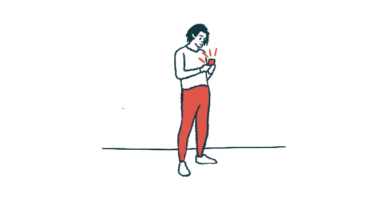The Change of Seasons Can be a Blessing

When you live with a bleeding disorder there are both good seasons and bad seasons. The good seasons are filled with scheduled prophy infusions, no bleeds, no missed days from school, and no calls from the school clinic. It just doesn’t get better.
The bad seasons are when hemophilia is the center of your life. Your son’s knee will not stop bleeding despite regular infusions. A bleed has finally resolved, only for your son to fall and injure his “good” knee, causing a new bleed to begin. The pain medications stop working, and you can’t make the pain go away. And the hospital stays become all too familiar. You just can’t catch a break.
My 11-year old son, Caeleb, has lived with an inhibitor for more than 10 years. He has had numerous bleeds, developed an allergy to Factor VIII, has two target joints and is on his sixth port. All he has ever wanted was to be a kid who can play sports and do regular “kid things.”
He finally received the go-ahead from the Hemophilia Treatment Center to attend a hemophilia camp in 2016. He was so excited! His bags were packed and ready, but a last-minute trip to the ice rink resulted in a broken wrist the day before camp. He was so close to going, but camp would have to wait another year. His brand-new sleeping bag went into the closet.
This summer (2017) was going to be the year he finally made it to camp! We pulled out the brand-new sleeping bag that had been waiting since last summer, packed his bags and anxiously waited for the day to come. I took him to the local chapter office to catch the camp bus and I think I was more excited than he was. He was about to experience a freedom like he has never had before. A week with friends, learning to self-infuse and being a boy without worry. I mean, what could possibly happen?
The phone rang Wednesday morning. “Cazandra, Caeleb fell down a flight of stairs, hit his head and I think he has a broken arm,” said the hematologist at camp. Now I am thinking, “Are you kidding me?!”
With the camp more than three hours away, my husband and I jumped into the car and took off. I was terrified. Being such a distance away really shook me up. I wasn’t as worried about a broken arm as much as the blow to the head. “What if he has a head bleed? Will we need to be transported via helicopter back to Albuquerque? Does he understand we are far away and trying to get there as fast as possible? Is he scared?”
I was torturing myself and, all of a sudden, the complacency I have developed the past two very amazingly uncomplicated years of hemophilia and an inhibitor vanished in an instant.
Once we finally made it to the emergency room in a town a few hours away, the moment I walked in to find my son, the smells and sound of “hospital” came at me with a vengeance. Every hospital experience I have lived through with my son seemed to compound in an instant. I saw him, grabbed him close and tears rolled down my face. He was smiling with his arm in a sling and cracking jokes.
I have loved this season of hemophilia and an inhibitor. That may sound odd to say, but if my son is not bleeding on a regular basis, is able to run and play and go up and down the stairs on his own, then I will count it as a successful season of our lives. A broken arm and bump on the head have proven to be not so subtle reminders that, yes, he still has hemophilia.
Seasons change, and until the next one arrives, I’ll continue to count my blessings.
***
Hemophilia News Today is strictly a news and information website about the disease. It does not provide medical advice, diagnosis or treatment. This content is not intended to be a substitute for professional medical advice, diagnosis, or treatment. Always seek the advice of your physician or another qualified health provider with any questions you may have regarding a medical condition. Never disregard professional medical advice or delay in seeking it because of something you have read on this website. The opinions expressed in this column are not those of Hemophilia News Today or its parent company, Bionews Services, and are intended to spark discussion about issues pertaining to hemophilia.







Leave a comment
Fill in the required fields to post. Your email address will not be published.